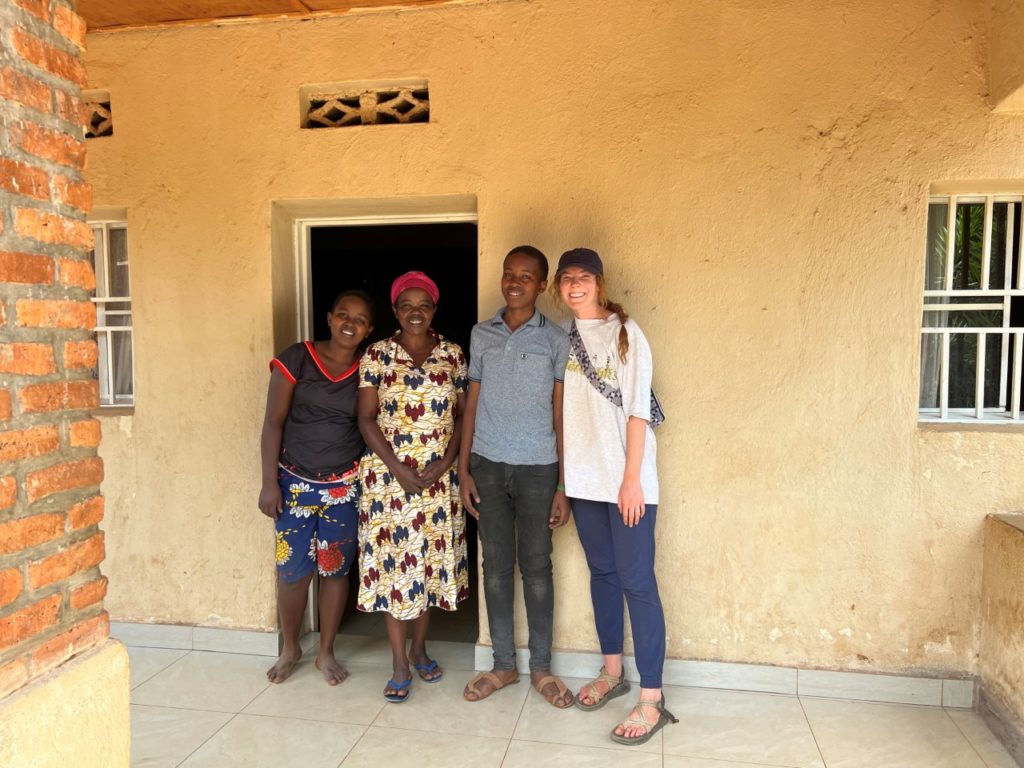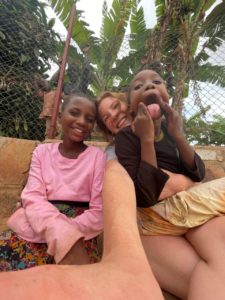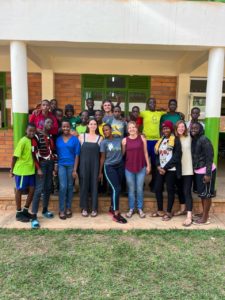
Emma Dammarell, a senior in the Department of Health and Exercise Science at Colorado State University, spent the summer in the Kabuga district of Rwanda, educating local people about important health and sanitation practices. She worked side-by-side with the director of families at a school there and was part of a week-long medical clinic hosted by International Medical Relief.
Dammarell and the community members were left with a strong sense of mutual impact after her time abroad.
Applying skills learned in the classroom on an international scale
Here in Fort Collins, Dammarell, who is majoring in health and exercise science, spends her days studying how to improve the health of general populations, learning how people approach change, and how to enact processes that will have sustained effects on a community.
In Rwanda, Dammarell’s everyday activities included teaching, playing outside with the schoolchildren, helping the other teachers plan their lessons, and achieving various service projects such as building a house and distributing water filters. The courses she led drew heavily from her HES classroom knowledge, teaching proper health practices to schoolchildren so that they can carry the practices home with them.

“I taught the children how they need to be eating, exercising, drinking, sleeping, and engaging their brains,” said Dammarell. “I also applied my knowledge of gathering vital signs such as blood pressure, pulse ox, and doing triage.”
According to International Medical Relief, Rwanda’s principal health problems are infectious hepatitis, dysentery, malaria, and tuberculosis. These issues stem from periods of extreme violence, such as the 1994 Rwandan genocide, which forced thousands to flee to refugee camps where they had no access to public health facilities or clean food and water. In recent decades, however, strong leadership in the public sector and investments in healthcare information have led Rwanda’s population to experience much-improved health outcomes.
Mutual impact
Anytime someone is a guest in another country they may be faced with culture shock. Dammarell approached this challenge with an open mind, describing her experience in Rwanda as eye-opening and thought-provoking.
“I learned to embrace a foreign culture and interact with people who have a very different lifestyle than mine,” she said. “I learned how to collect information and implement helpful strategies and programs to improve their quality of life.”
One of the most important things Dammarell learned during her summer in Rwanda is how critical it is to foster genuine relationships and connections with those around her. To do this, Dammarell noted that one must fully embrace the culture of the people in the area.
“I feel that the deepest impact I had on the communities I visited was providing health education, medical relief, and friendship,” Dammarell said. “I was able to help community members learn about how to live healthy lives in the context of building friendships with them.”

In turn, the impact that the Rwandan community had on Dammarell was priceless. Though she had a clear idea of what she wanted to do with her future before she left for Rwanda, her experiences over the summer led her to the realization that she wants to work closely with the people she’s helping, emphasizing the relationship she creates with them as part of her service.
“I realized that in whatever career I pursue, I would like to be able to provide solutions and answers that encourage the overall health of a human being, whether that be physical, spiritual, or emotional,” said Dammarell. “I realized that I would like to be working closely with young women, or middle-school ages children.”
Now that she’s back in the U.S., Dammarell reflects on her work with the Rwandan children.
“The experience that stands out most to me is the thankfulness that the children had for the education we were providing for them,” she said. “To be a positive part of their lives was very uplifting for me.”
Advice for fellow students
Dammarell believes that her fellow HES students should adopt the “just go for it!” mindset and open themselves up to experiences that might scare them but will ultimately make them better people.
“College is such a unique time to embrace cool opportunities and get out of your comfort zone,” said Dammarell. “I would encourage my HES peers to put themselves in situations where they will be able to learn a lot and meet all types of different people.”
The Department of Health and Exercise Science is part of the College of Health and Human Sciences.